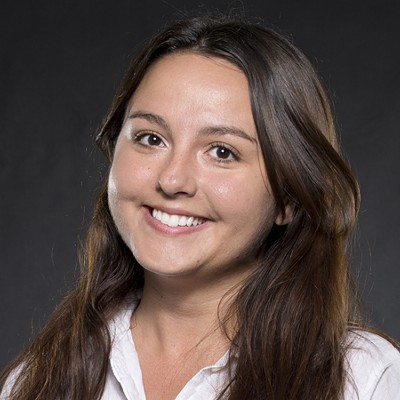For the past three years, Dr. Hansel Tookes, a 34-year-old medical resident specializing in infectious diseases, has fought to bring a needle-exchange program to South Florida. With the spike in heroin use, a needle exchange is desperately needed here, Tookes says — especially since Miami-Dade and Broward counties have the highest rates of HIV.
A needle exchange would allow anyone to bring in a dirty needle and exchange it for a clean one. Staff would examine injection sites for infection and provide pamphlets about drug treatment centers. There are 194 similar programs in America. This would be the first one in Florida.
But for the past three years, the bill that would set up a framework for such a project — called the Infectious Disease Elimination Act — has been shot down in the state Legislature. This year, though, seems promising. On Wednesday, it passed the House Judiciary Committee, and it needs to pass only one more committee to receive a full vote in the House. (It’s already passed through its committees in the Senate.)
“Our legislators have acted decisively by passing IDEA through the judiciary committee,” Tookes tells New Times. “It is privilege to be a physician, to save lives.”
Earlier versions of the bill specified that the needle-exchange program would be run through Florida's Department of Health. In this version, it would run as a pilot program at the University of Miami's Miller School of Medicine, adjacent to Jackson Hospital, where Tookes works. It would be paid for privately by grants and donations.
County ordinances in Miami-Dade and Broward prohibit the sale of syringes to any person without a prescription, and at a cost of $18 for a box of 100, most addicts could barely have afforded to buy enough needles to satiate their habit anyway. On the streets, dealers sometimes sell clean insulin syringes they pilfered from diabetics for $3, but gathering enough money for a clean needle is usually an afterthought.
Without a legitimate needle exchange, three activists have started an underground needle exchange in Miami and Broward. They order large quantities of needles and pass them out to users in the street. But it's not nearly enough to meet the demand.
In 2009, Tookes and a team scoured Miami's streets, interviewing users and tallying the used syringes on the ground. The study found that 95 percent of users dump their used needles onto the street, and the number found on the street in Miami is eight times higher than in San Francisco, where there is a needle-exchange program.
"The research is out there. Needle-exchange programs like the ones in San Francisco work," Tookes says. "And it's so much more than getting a clean needle — there are people working there who will examine any abscesses and make sure they aren't infected. It prevents these common infections from getting worse."
This year, Tookes and his colleagues published a cost-analysis study that found a needle-exchange program would save Jackson Hospital $11.4 million. That’s because the brunt of the medical costs are passed on to taxpayers, as most injection drug users who contract diseases rely primarily on Medicare or Medicaid. The estimated cost of a hospital stay for an injection-drug user averages $4,449. The lifetime cost of treating an HIV-positive person is more than $600,000.
Rep. Katie Edwards of Broward, who sponsored the bill, was joined by Tookes, Sen. Oscar Braynon (who sponsored the bill in the Senate), Miami-Dade Mayor Carlos Jimenez, Miami-Dade firefighters, and the Miami Dade County commissioners in Tallahassee this week. Edwards is optimistic that the fourth legislative session is the charm. "It is just unfortunate that Florida has to experience such a severe heroin epidemic for policymakers to respond," Edwards says.
“I am optimistic that our Legislature will let these vulnerable citizens know that their lives matter,” Tookes says, “and we can give them hope of a life without addiction, hopefully free of disease.”
[
{
"name": "GPT - Billboard - Slot Inline - Content - Labeled - No Desktop",
"component": "16971022",
"insertPoint": "2",
"requiredCountToDisplay": "2"
},{
"name": "Editor Picks",
"component": "15769925",
"insertPoint": "4",
"requiredCountToDisplay": "1"
},{
"name": "Inline Links",
"component": "16575154",
"insertPoint": "8th",
"startingPoint": 8,
"requiredCountToDisplay": "7",
"maxInsertions": 25
},{
"name": "GPT - Rectangle 2x - Slot Auto-select - Labeled",
"component": "15782206",
"insertPoint": "8th",
"startingPoint": 8,
"requiredCountToDisplay": "7",
"maxInsertions": 25
},{
"name": "Inline Links",
"component": "16575154",
"insertPoint": "8th",
"startingPoint": 12,
"requiredCountToDisplay": "11",
"maxInsertions": 25
},{
"name": "GPT - Leaderboard to Tower - Slot Auto-select - Labeled",
"component": "15782207",
"insertPoint": "8th",
"startingPoint": 12,
"requiredCountToDisplay": "11",
"maxInsertions": 25
}
]











